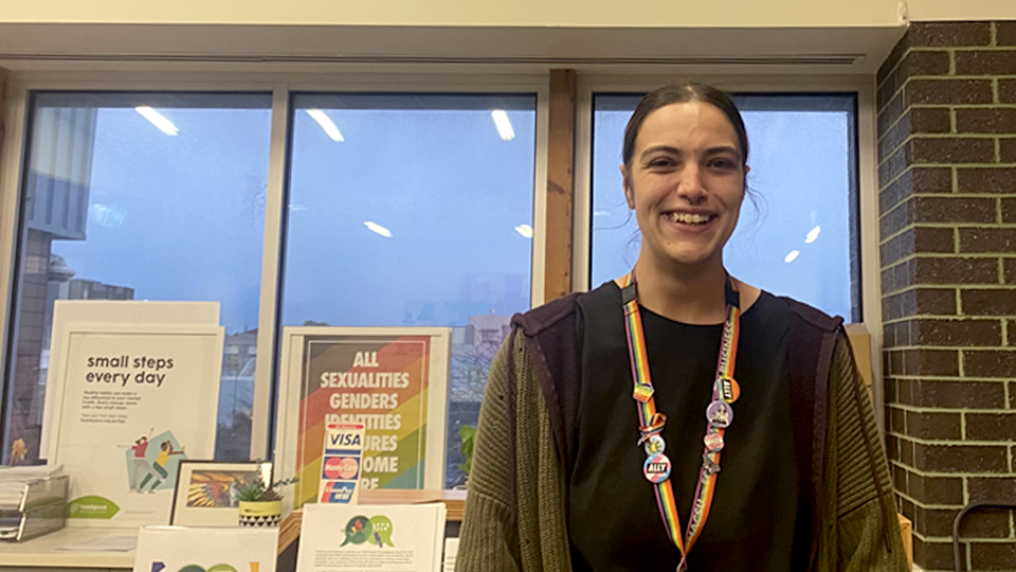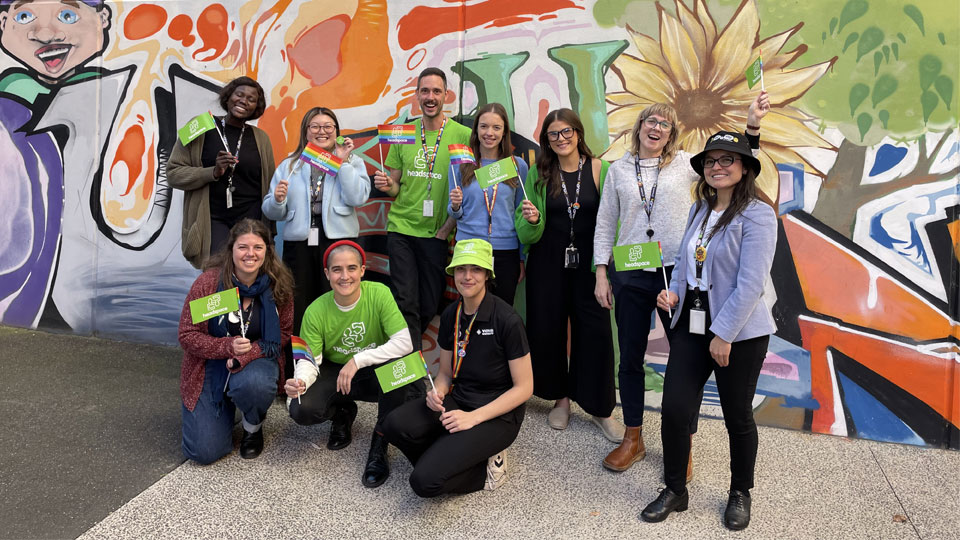Placing young people at the centre of their care – Briahny at headspace

We engage parental and carer figures in the way we want them to communicate with the young person – without judgement and fostering hope.
Briahny Lundberg
Bachelor of Social Work
Even before Briahny started her degree, she knew that she wanted to be the kind of social worker who would be there for people, who could help remove barriers and advocate. Now working at headspace Sunshine as an Access Team Clinician, Briahny is excited to come into work each day and says she feels privileged to work with young people and help them on their journey.
“I started a
Bachelor of Social Work at Victoria University in 2019. I knew that the
Block Model, taking the units one-by-one, would suit my learning style. I also loved what I’d seen of the Footscray Park Campus and couldn’t wait to go to the cafés.
“The course has a strong focus on critical social work and centering individual needs. I learned how to reflect critically on the way I practice and engage with individuals, which keeps me accountable and helps me to identify knowledge or skill areas to continue developing.
“The course also prepared us with advocacy skills to identify systems or services that are furthering oppression and discrimination, and to attempt to alleviate those barriers for the individual.
“Before I started the course, I’d interacted with social workers who championed a person-centered approach, and I wanted to be that for others.”
Working with young people in the access team at headspace Sunshine
“In the final year of my course I completed a placement at headspace Sunshine in the access team.
“I had the same training and professional development opportunities as the rest of the team, including external training programs such as The Royal Children Hospital’s gender affirmation training, and I was included in events and chances to hang out together outside of work.
“When I started the placement, I put a lot of pressure on myself. I was very unsure of my abilities as an emerging practitioner. But the team were so inclusive and supportive and really valued my opinions and skills.
“Their support was a massive reminder that it’s not realistic that you’ll know everything, and that’s why working with others is so important. Being able to learn from everyone also allowed me to refine my own practice style and has introduced me to a world of new approaches and interventions.
“I’m now a fully-fledged Access Team Clinician at headspace Sunshine!
“After completing my studies with such an incredible cohort of peers, I’m proud to be part of a field of critically reflective social workers that advocate for system change and place individuals at the centre of their own care.
“The access team is the first point of contact for young people and their families: we do face-to-face appointments, phone calls, assess needs, and collaboratively develop support plans.”
Referring to GPs, allied health, & community groups
“We refer young people to GPs and allied health practitioners and link them up with services based on needs they have identified (for example, if a young person is seeking social connections, we might recommend joining one of our social groups).
“Holding space for young people and their families and listening and communicating with respect and with no judgement helps build rapport, and I find it’s a lot of the work that I do.
“We engage parental and carer figures in the way we want them to communicate with the young person – without judgement and fostering hope.
“Finally, and potentially most importantly, is cultural humility. When working with people from culturally and linguistically diverse backgrounds, and transgender and gender diverse people, it is so important to listen, critically reflect and allow the experts to lead their support pathways and conversations around their own lives and experiences.
“The team culture of supporting and checking in with each other, sharing knowledge, and genuine team building is embedded, and it makes me really enjoy coming into work.
“The other benefit is getting to engage with such a diverse group of young people. It’s a massive privilege to have others share their experiences with me, and to be able to support young people on their journey is incredibly empowering.”
What's a student placement like at headspace?
Lucinda Leggett, Clinical Educator, headspace, says:
"Students on placement at our headspace centres gain experience and confidence in applying theory to practice in a real world setting with young people and their families. They are supported by staff and their supervisor to develop their practical skills, and they also bring a range of fresh perspectives through their individual learned and sometimes lived experience.
Placements are always a two-way process. Often students benefit from their placement so much, that they want to come and work at one of our headspace centres.

Victoria University is proud to work with headspace centres across Melbourne’s West, through our partnership with Orygen – collaborating to improve mental health outcomes for young people through employment, placements, research and community engagement.